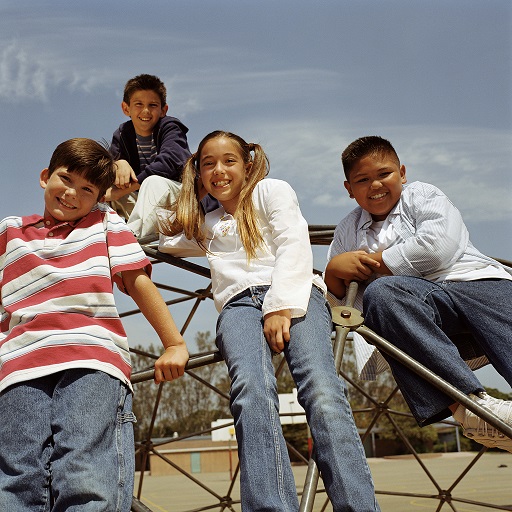New study explores volunteers’ motivations for mentoring youth
Miranda-Díaz, M., Clark-Shim, H., Keller, T. E., & Spencer, R. (2020). Determinants of Motivation for Mentoring Among Adults Volunteering to Mentor Youth. Journal of Youth Development, 15(4), 174–189. https://doi.org/10.5195/jyd.2020.881
Summarized by Ariel Ervin
Notes of Interest:
- A majority of mentoring programs depend on volunteers to mentor youth.
- This study aims to identify some key factors that help motivate people to become volunteer mentors, specifically altruistic and self-oriented reasons.
- Findings show that there are many motives for people to become volunteer mentors.
- Mentors who had higher levels of ethnocultural empathy were more likely to advocate for altruistic motivations for volunteering.
- Female mentors also had higher levels of altruistic motivations for volunteering.
- Younger mentors, female mentors, and mentors of color had higher levels of self-oriented motivations for volunteering.
- Altruism and empathy are important characteristics for mentors to have in order to establish healthy mentoring relationships. The ability to connect with youth across cultural differences plays a big role in this, as well.
- It’s important for program practitioners and researchers to consider the motives of mentors volunteering throughout the ongoing mentoring relationship, as well as how these motives affect the mentees’ experiences in the relationship.
Introduction (Reprinted from the Abstract)
Most youth mentoring programs rely on volunteers to serve as mentors to youth. This study investigates factors associated with motivations for volunteering in this capacity, specifically altruistic and self-oriented reasons for becoming a mentor. Because adults who volunteer as mentors and youth mentees typically come from different socio-cultural backgrounds, the study examines demographic characteristics associated with these different motivations. In addition, the study addresses the empathy-altruism hypothesis suggesting that individuals with higher levels of empathy exhibit greater altruistic tendencies. For this analysis, the focus is on ethnocultural empathy and its association with volunteer motivations. The sample consisted of 1,000 volunteers who applied to mentor in 4 agencies affiliated with a national mentoring organization. The results indicated that mentors reporting higher levels of ethnocultural empathy were more likely to endorse altruistic motivations for volunteering. Younger volunteers, female volunteers, and volunteers of color reported higher levels of self-oriented motivations for volunteering. Female mentors, in general, reported higher levels of altruistic motivations for volunteering. Altruism and empathy, particularly the ability to connect with youth across cultural differences, are considered important mentor attributes conducive to healthy mentoring relationships. The implications of these findings for research and practice are discussed.
Implications (Reprinted from the Discussion)
This study sought to expand our understanding of motivations for volunteering as a mentor by examining associations with volunteer characteristics and attitudes towards different cultural groups. Because adult volunteer mentors and youth mentees tend to come from different sociocultural backgrounds, it is important for agencies to understand what factors may influence volunteer motivations not only for developing recruitment strategies, but also providing needed support for mentors and mentees to navigate their differences and build and maintain a supportive relationship between them. Additionally, agencies that are interested in recruiting volunteer mentors who will be more satisfied with their volunteer experience and willing to perform helping behaviors beyond the expectations of their role, should consider examining volunteer motivations and matching these motivations to the volunteer role (Cornelis et al., 2013)
The current study found that volunteer mentors’ demographic characteristics and ethnocultural empathy were related to their motivations for volunteering. Mentors who reported higher levels of ethnocultural empathy tend to endorse higher levels of altruistic motivations for volunteering. As previously noted, ethnocultural empathy is conceptualized as having “empathy toward people of racial and ethnic backgrounds different from one’s own” (Wang et al., 2003, p. 221) or “as an interpersonal phenomenon where the two persons care as well as think and feel . . . feeling, understanding, and caring about what someone from another culture feels, understands, and cares about” (Rasoal et al., 2011, p. 8). Altruistic motivation is about doing things for the benefit of humanity, including youth and communities. Consequently, consistent with the empathy-altruism hypothesis, the connection can be made between ethnocultural empathy and the level of importance in enhancing the quality of life of the mentee (altruistic motivation).
However, it is important to note that most volunteer mentors in this study reported relatively high levels of ethnocultural empathy and altruism. Unlike natural mentors (e.g., teachers, counselors, and relatives), who by the nature of their jobs or familial ties to a youth often fulfill certain mentoring responsibilities, all of the mentors in the current sample are making an intentional choice about becoming a formal mentor, and fostering a relationship with a mentee with whom they might not have ties (Keller, 2007). Thus, by virtue of choosing to become a formal mentor, it is possible that these mentors possess strong motivations for becoming a mentor, have a basic understanding of the type of youth served by the mentoring program, and have empathy towards youth who are often disadvantaged and/or of an ethnic-racial minority group.
To access this article, click here.










